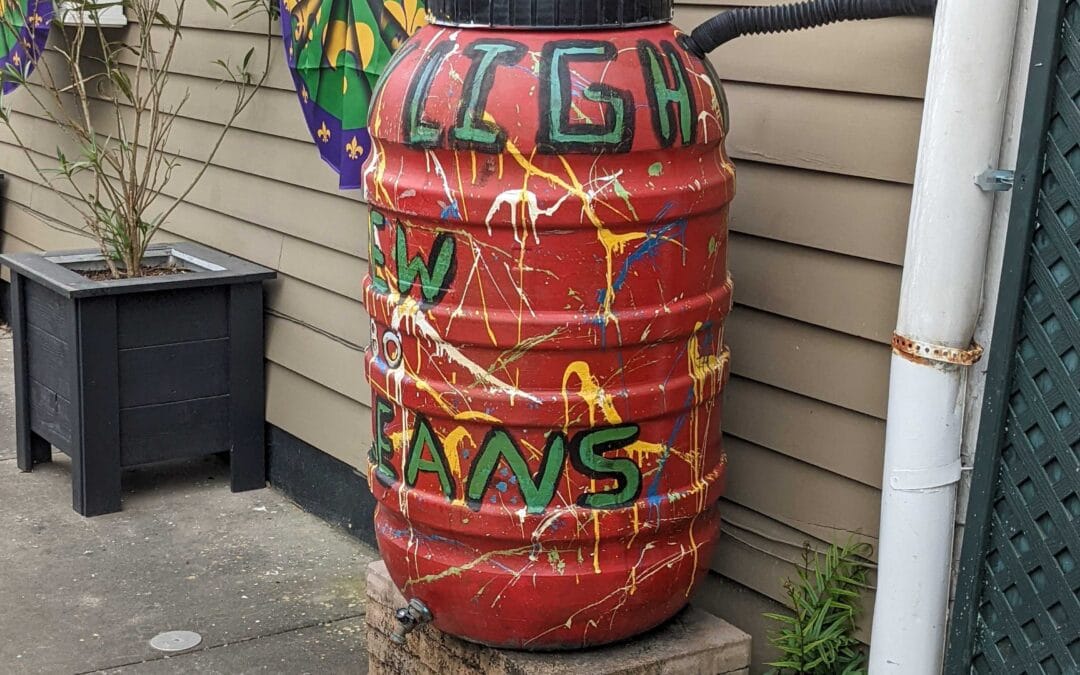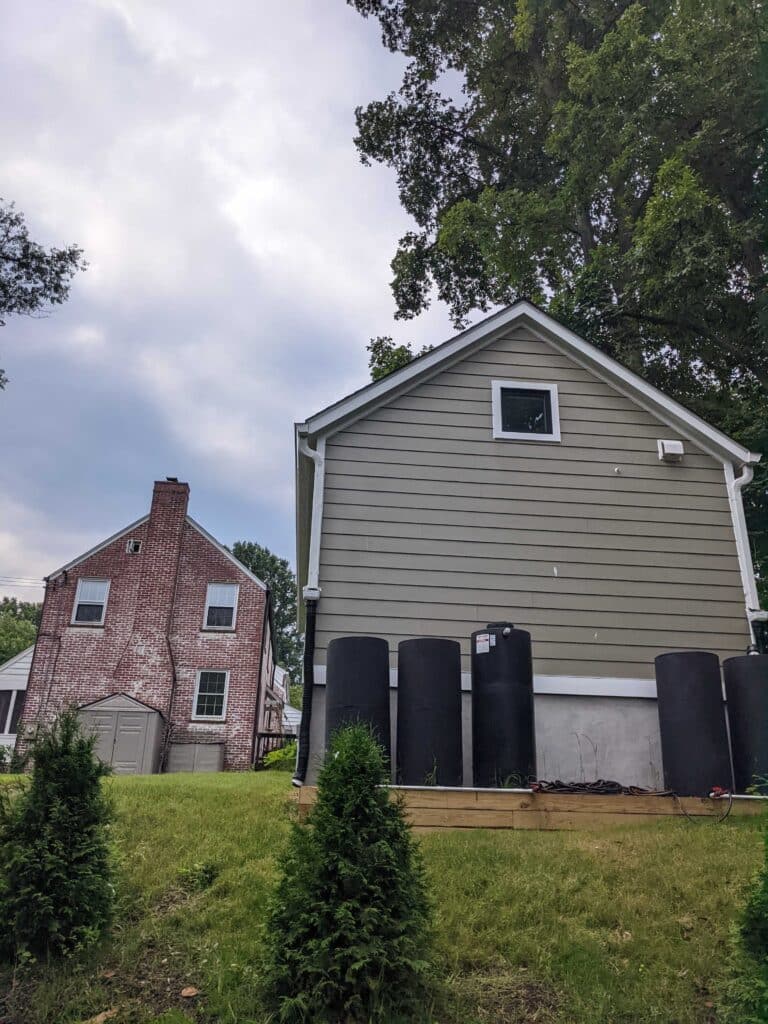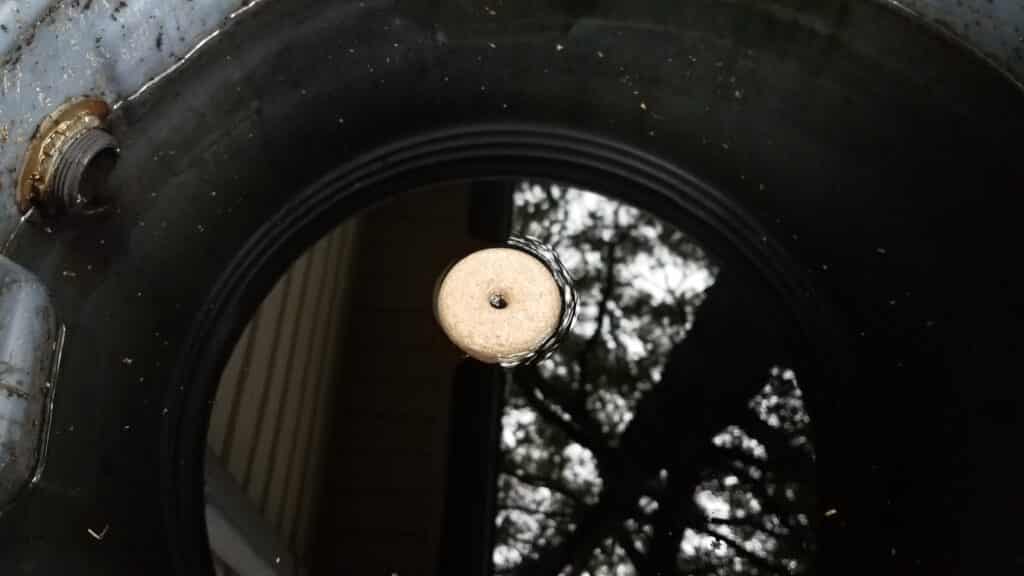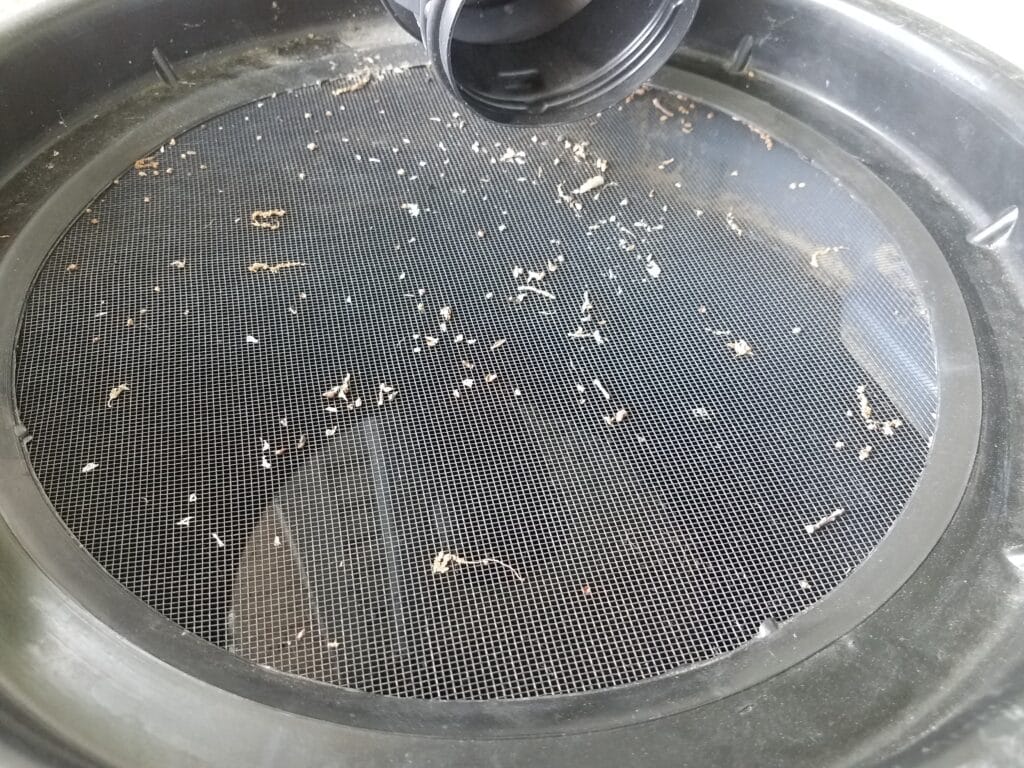Recently we posted about residential rainwater collection systems on social media, and it ignited a discussion on whether having a rain barrel was legal or not in their state. We won’t bury the lead here, and rainwater harvesting methods are legal in all 50 states. Each city will have certain restrictions, but there is no place in the United States where catchment systems are entirely banned. So can you collect rainwater in California? Yes. Can you collect rainwater in Tennessee? Yes.
Let’s break down what to look for in each state, and we will share links with you about state water catchment requirements.
DIY Rain Water Harvesting Laws
Do-it-yourself rainwater harvesting has been around, well…, forever. It makes sense that humans naturally want to capture the #1 life-sustaining source. Everyone can agree that if rain falls on your property, it should be yours to keep. However, cities and states started implementing measures making it illegal many years ago after weighing the disadvantages of rain water harvesting, such as growing mosquito viruses and the need for rainwater to help wash street debris.
Old statutes and codes were based on an older generational need; before urbanization, new laws started to take off. In some states, it was illegal because if the water came into your yard from someone’s property-it originated as roof rainwater collection-then you could be accused of stealing since the water didn’t fall on your land.
So as you can see, it was an older way of thinking before mosquito populations could be controlled, before property codes were put in place, and before city infrastructure was overwhelmed by water runoff.
How to Store Rain Water
Rain water harvesting tanks-a fancy name for rain barrels or small ground cisterns-are bins set up for collecting rainwater from gutters. When the water falls on your roof and rolls off, it makes sense to collect it right there at the source. Traditionally rain barrels have been propped up on cinder blocks (gravity helps with water pressure when you hook up a hose or spout) and are connected directly to the downspout on a gutter.
It’s a system that works for water catchment, but what cities were noticing is that not all rain harvesting farmers were adequately taking care of their rain barrel maintenance. Rain water harvesting tanks are not supposed to hold water for more than a few days; otherwise, they become breeding grounds for mosquito larvae and bacteria. Public health officials were also concerned that some people would start using rain water collection for drinking—causing alarm because the chemicals collected from roof pitch, paint, and rust can be detrimental to human health. If people were unwilling to store their rain water properly or use it for drinking, public officials thought it best to outlaw the practice altogether.
Residential Rain Water Harvesting Today
With the understanding of why it was ever considered illegal, let’s talk about the codes and legalities for rain water collection today. All 50 states allow you to collect rain water and be a part of the process of storing rain water. However, some areas have codes and rules that allow for restrictions.
Restrictions you might see:
- -you to only store the water for so long
- -how much are you allowed to collect
- -what materials can you use to collect rain water
- -if you live in an HOA, there are requirements on visibility or maintenance
Colorado is the state with the most restrictions when it comes to water harvesting. Every other state allows rainwater capture, but some require permitting or have specific conditions.
This source is a great starting point for discovering more about your state’s rain water collection regulations. https://www.harvesth2o.com/statues_regulations.shtml#co
How Rainplan Can Help
One way of finding out restrictions and codes for your area is to use our search engine incentive matching. They are considered legal if your state or city has an incentive program for residential rain barrels. Also, the incentive program website can give you more information about any restrictions or materials you should be using. Type in your address below to start your rain story with us and to find incentives!





